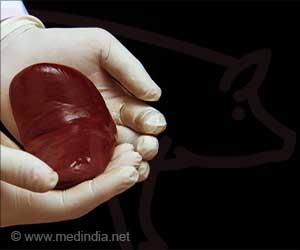A new study has said that treating hospital patients with thigh-length surgical stockings, rather than knee-high socks, can reduce life threatening blood clots.

The CLOTS (Clots in Legs Or sTockings after Stroke) study from the University of Edinburgh highlights that the clot rate in stroke patients was higher among those fitted with the shorter stockings than for those with longer stockings.
Another study, published last year by the same researchers, showed that thigh-length stockings did not usefully cut the risk of DVT in stroke patients.
This new study shows that short stockings are even less likely to help patients. The National Institute for Clinical Excellence have changed their guidelines based on these findings and no longer recommends that stockings are used for stroke patients.
However, stockings are also very widely used to prevent blood clots in patients who undergo surgery. Clinicians mostly use short stockings, which are cheaper and easier to fit than thigh-length stockings. In Scotland, for example, about three-quarters of stockings used by the NHS are short.
This study questions whether the widespread use of short stockings is appropriate given the greater risk of clots associated with their use. Use of short stockings may result in many more patients suffering potentially life-threatening clots.
Advertisement
Stroke patients fitted with below-the-knee, stockings were 30 per cent more likely to develop deep vein thrombosis than patients fitted with thigh-length stockings. This could be because the most serious type of blood clots tend to be in the thigh, researchers suggest,
Advertisement
"Millions of patients worldwide are fitted with stockings each year. Unless reliable evidence emerges that short stockings do actually reduce the risk of DVT, long stockings should always be used in preference."
Although trials have shown that stockings reduce the risk of DVT in patients undergoing surgery, these have only tested long stockings. The researchers have not identified any studies which show that below-knee stockings work.
David Clark, Chief Executive of Chest Heart & Stroke Scotland, said, "More than 150,000 people a year have a stroke in the UK and it is vital they receive the best possible treatment. This important research, which was seed funded by Chest Heart & Stroke Scotland , shows conclusively that short compression stockings do not benefit stroke patients. We can now focus our efforts and research funding on finding a treatment which will reduce the risk of clots. "
The team from Edinburgh are now testing another type of device which actively massages the legs to keep the blood moving which they hope will prevent CLOTS in stroke patients. The results from that trial are expected in about three years.
Source-Eurekalert













